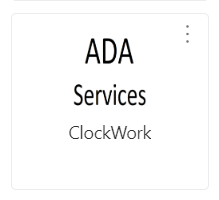Students must first apply and be accepted to Pensacola State College. They must meet the program requirements for admission.
Students must self-identify that they are needing accommodations and should schedule an appointment with the Student Resource Center for ADA Services: 850-484-1637 or ADA-Services@pensacolastate.edu
High school IEPs and 504s do not automatically follow students to college.
Students will meet and discuss their disability, its impact, and the needed accommodations. Students need to provide clear, convincing documentation that states the diagnosis and supports the need for academic accommodations.
Unlike high school, accommodations at the college level do not and cannot change the content of the course, including the reading level and amount of work required. All students must learn the same material and are graded according to the same standards.
Having a medical condition or disability does not mandate that a student receive accommodations under ADA/504. If mitigating circumstances such as eyeglasses, hearing aids and/or medications offset the limiting effects of a disability, then a student may not require accommodations in order to have equal access.
Responsibilities
Once a student is registered to receive accommodations, the student is responsible for:
- Following guidelines and procedures for specific accommodations and services
- Scheduling exams and quizzes with the ADA Testing administrator at least three days in advance, if testing in the ADA office
- Requesting adapted course materials, ASL Interpreters, readers, and any other services provided by the ADA office in advance of the date needed
- Maintaining contact with the ADA office
- Providing the accommodations notice to instructors each semester
Issues with Accommodations
Sometimes a student continues to have difficulty even with accommodations in place. If this happens, please contact the ADA Services office. We can discuss additional accommodations as well as identify other resources to assist you. We can also discuss changing majors.
If a student believes an instructor is not providing their accommodations, they should first address it with the instructor. If they do not believe the issue is resolved, they should contact our office.
Conduct
All students must adhere to the PSC student code of conduct and the honor code regardless of whether or not the student has a documented disability.

 PirateQ
PirateQ 
